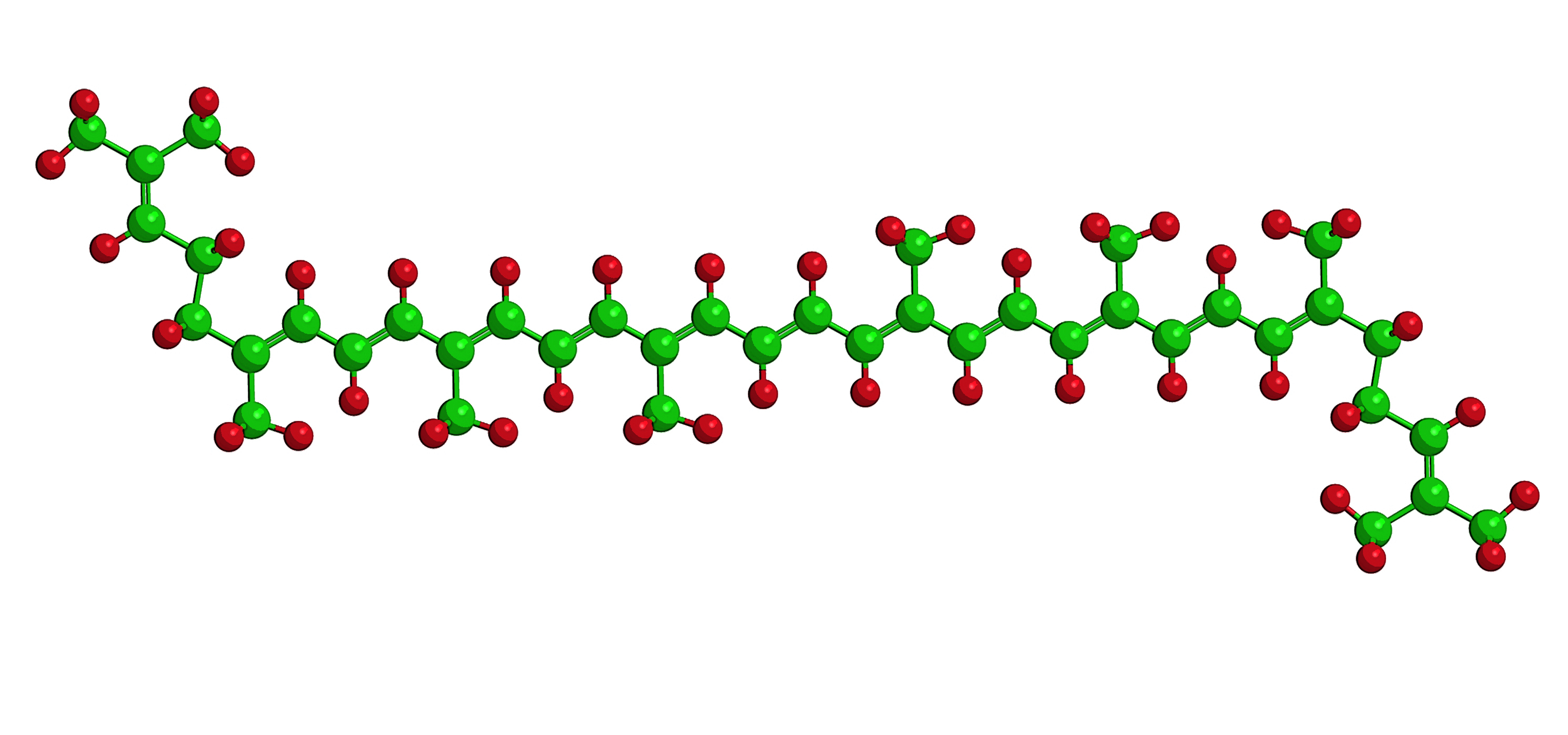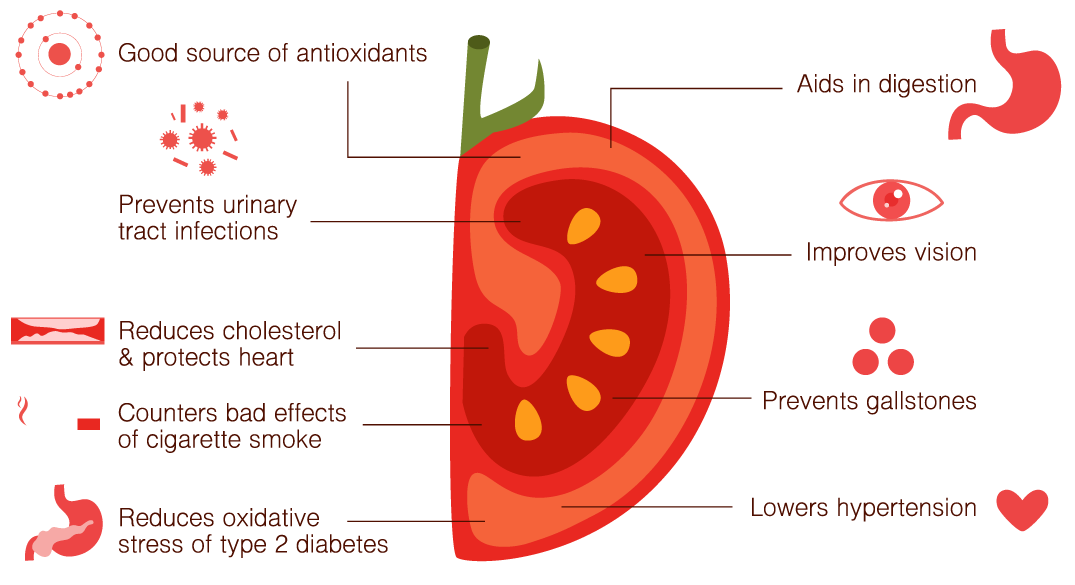Tomato Nutritional Facts, Info and Health Benefits of Lycopene
To date, a great amount of research has been done on Lycopene and researchers have discovered that Lycopene is one of the most beneficial natural compounds we can ingest that has an incredible range of healthful attributes with regards to a number of types of human ailments and organs.

Lycopene is a phytonutrient. A plant-bore compound that, while not necessary for normal metabolic function, enhances the overall health of an organism.
Lycopene’s chemical formula is C40 H56

Lycopene’s molecular level: a terpene built of 8 isoprene units

Lycopene is the compound that puts the red in tomatoes!
Chemically, Lycopene is a carotenoid pigment. To date, over 600 carotenoids have been discovered in nature.
Carotenoid is a natural organic pigment characterized by possessing a large number of carbon atoms (35 to 40) and having a molecular structure that includes conjugated double carbon-carbon bonds known as chromophores.
Depending on the number of chromophores, colors may range from pale yellow to dark red.
Basically…the more chromophores…the darker the pigment…thus the red tomato.

Lycopene is an Antioxidant! Antioxidants reduce the oxidative decay of cellular material.
Scientific experiments and studies have shown a high level of correlation between oxidative damage and increased disease rates.
Processed tomato products and their associated Lycopene counteract free radicals’ degenerative effects by inhibiting free radicals from oxidizing biological materials.
Let’s List the Health Benefits:
- Lowers the risk of cardiovascular diseases
- Helps to prevent diabetes
- Prevents age-related macular degeneration & cataracts
- Prevent age-related decay of the brain and nervous system
- Prevents the aging of skin
- Protects your skin from sunburn
- Prevents osteoporosis
- Anticarcinogenic (anti-cancer) – prevent DNA damage
- Helps lower prostate cancer risk
- Reverse male infertility
The best way to get Lycopene into the human body is through processed tomato products. Why?
- Heating actually helps release Lycopene from the tomato.
- Lycopene is concentrated in processed tomato goods.
- Most importantly, Lycopene is fat-soluble… unless eaten with some sort of oil or fat, much of the ingested Lycopene passes through the body.
Fact: Tomato paste has four times the quantity of Lycopene by weight than a fresh tomato.
Morning Star actively promotes and encourages continuing advances in the study of Lycopene, how it relates to health, and how it can be delivered in sauces and through bulk tomato paste and other processed tomato products.
As trends change and food science technology advances, Morning Star will be at the forefront of developing ever-healthful and cost effective products, as the company has since its inception, with close attention paid to the benefits of Lycopene.
If future research culminates in the efficient production of synthetic Lycopene, and it is found to be able to be added to processed tomato products, the world may see processed tomato goods even higher in Lycopene concentration.
- Comparing Raw and Processed Fruits and Vegetables
- Maximizing the Nutritional Value of Fruits & Vegetables
- Nutritional Comparison of Fresh, Frozen and Canned Fruits and Vegetables, Part 1
- Nutritional Comparison of Fresh, Frozen and Canned Fruits and Vegetables, Part 2
- Lycored
- Tomato and Health
- Prostate Cancer Foundation – Prostate Cancer and Lycopene
- American Cancer Society Research
- British Heart Foundation
- Mayo Clinic – Lycopene Research
- Harvard: Lycopene and Prostate Cancer
- Physicians Committee for Responsible Medicine
- Prostate Cancer / Lycopene Clinical Trial
- Lycopene and Vitamin E Research
- Food Navigator – Dark Red Ketchup Boosts Lycopene Levels
- Science Daily – Lycopene & Other Tomato Components
- The Telegraph – Superfoods: The Tomato
- BBC News – Lycopene Fights Infertility
- BBC News – Lycopene and Cancer
- Ohio State – Breeding Tomatoes to Boost Lycopene Content
- Purdue University Lycopene Research
- UNC-CH News – Tomato Sauce and Heart Attack Prevention
- IOL – Benefits of Tomatoes
- CMAJ – Tomato Lycopene and its Role in Human Health and Chronic Diseases
- Oxford Academic – Lycopene and Atherosclerosis
- Oxford Academic – Dietary Lycopene, Tomato-Based Food Products and Cardiovascular Disease in Women
- Oxford Academic – Scientific Study on the Health Effects of Processed Tomato Products
- Oxford Academic – Lycopene and Cardiovascular Disease
- Ontario Processing Vegetable Growers – Extraction of Lycopene Concentrate as Food Ingredient


